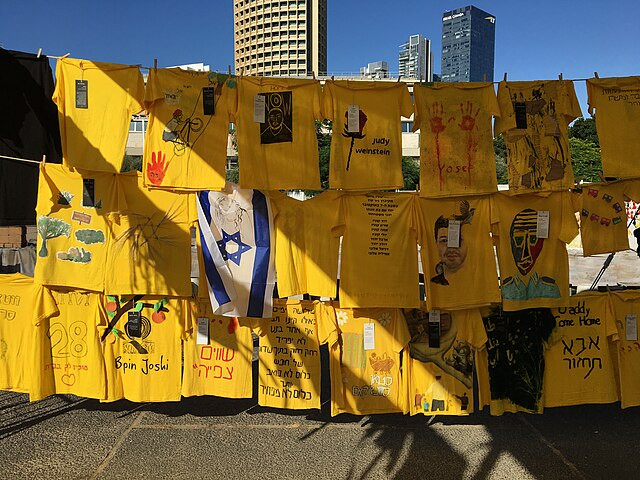Hamas has agreed to release American-Israeli soldier Edan Alexander and return the bodies of four other dual-national hostages, according to a statement issued by the militant group on Friday. The announcement comes amid ongoing negotiations mediated by Qatar and Egypt, as the United States seeks to extend a temporary ceasefire in Gaza in exchange for the release of hostages.
"The movement responded with responsibility and positivity, submitting its reply at dawn today, which included its approval to release Zionist soldier Edan Alexander, who holds American citizenship, in addition to the bodies of four others with dual nationality," Hamas said in its statement. The group did not specify when the release might take place or name the deceased hostages.
Hamas' announcement follows a new U.S.-backed proposal that would facilitate the release of several living hostages in exchange for a one-month extension of the current ceasefire. The proposal, delivered by U.S. Special Envoy Steve Witkoff during meetings in Qatar, also includes provisions for Israel to lift its blockade on humanitarian aid entering Gaza.
Israeli Prime Minister Benjamin Netanyahu's office responded to Hamas' statement with skepticism, calling it "manipulation and psychological warfare." The office stated, "While Israel has accepted the Witkoff outline, Hamas remains steadfast in its refusal and has not budged a millimeter." Netanyahu is scheduled to meet with his team on Saturday night for an update on negotiations and to decide on further steps to secure the release of hostages.
Hamas claims it remains committed to an earlier agreement that could lead to the end of the war in Gaza, according to a senior Hamas official. The official stated that Hamas accepted a mediator proposal to release Alexander and the bodies of four deceased hostages as a gesture of goodwill. Hamas previously indicated that it was willing to release Alexander as part of negotiations, a message reportedly relayed to U.S. officials.
Alexander, 21, was captured by Hamas during its October 7 attack on Israel. His father, Adi Alexander, told CNN that his son was "just holding up" but had lost significant weight and might have sustained injuries during his capture. "He is there, and he is alive, and just waiting patiently," Adi Alexander said, describing his son as "an all-American kid."
At least 12 American-Israelis were taken hostage during Hamas' attack, and four other U.S. citizens remain among the deceased captives whose bodies are held by Hamas. The Israeli Hostages and Missing Families Forum has criticized the prioritization of hostage releases based on nationality, warning that it sets a precedent for foreign governments to influence Israel's handling of its citizens. "The hostages returning should only be the opening to an agreement that will return everyone in one step and immediately," the forum stated.
U.S. negotiations with Hamas mark a rare departure from Washington's longstanding policy of refusing to engage directly with groups it designates as terrorist organizations. The decision to hold talks underscores the urgency of the hostage crisis and the broader diplomatic effort to de-escalate the conflict in Gaza.
Meanwhile, the humanitarian situation in Gaza continues to deteriorate. Israel has cut electricity to the last functioning power facility in the region and closed major border crossings, blocking the flow of aid. The United Nations' World Food Programme reported Friday that it has been unable to deliver food to Gaza since March 2 due to the closure of border crossings. The WFP have the equivalent of "two to three months of distributions for 1.1 million people, pending authorization to enter Gaza," the agency said.
Israeli officials have accused Hamas of using hostage negotiations as a delaying tactic while continuing to resist broader ceasefire agreements. An Israeli official claimed that Hamas' latest offer to release Alexander was an attempt to "sabotage negotiations" rather than a genuine step toward resolution. "Hamas has not changed its position one bit, despite the efforts of the Trump administration and the Qatari and Egyptian mediators, and despite Israel's willingness to be flexible," the official said.




